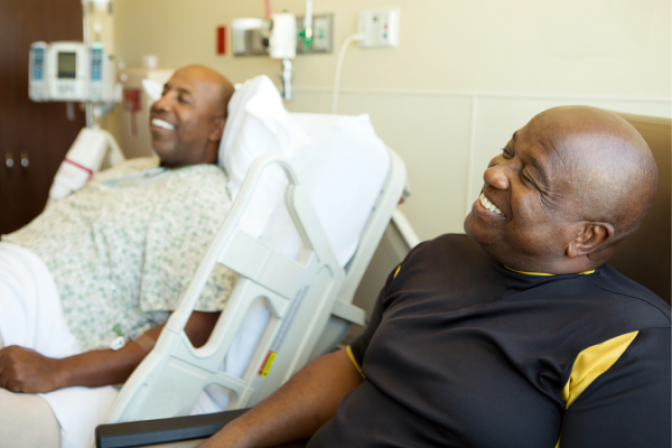Meeting with your legislator can feel overwhelming, particularly for first-timers, but remembering the basics can ensure your session goes off without a hitch! All you...
Expanding Living Donation: Understanding the Key Legislation
- English
- Español
May 07, 2024, 11:04am EDT
Every day, 12 people die waiting for a kidney transplant. Living organ donation plays a vital role in addressing this crisis. However, many potential living donors face barriers that discourage them from pursuing this life-saving act.
To support and protect living donors, several critical bills have been introduced in Congress. Let's explore these important pieces of legislation.
A Chance to Make a Difference
Living organ donation is a remarkable gift, but it shouldn't come at the expense of a donor's financial security or employment. These bills represent important steps towards protecting and supporting those who choose to selflessly donate an organ to someone in need.
One thing these bills do not do is reward or promote the commodification, or selling, of organs. They simply remove barriers and reimburse for any costs that the donor incurs in their process. They are not rewarded for donation, which is unethical and illegal under the National Organ Transplant Act of 1984.
Download a one-pager on these three bills.
1. The Living Donor Protection Act (H.R. 2923/S. 1384)
This bipartisan bill aims to prevent insurance discrimination against living organ donors. It would prohibit life, disability, and long-term care insurance companies from denying coverage or charging higher premiums solely based on an individual's status as a living donor.
The bill also seeks to include living organ donation as a qualifying event under the Family and Medical Leave Act. This would provide job protections to donors, allowing them to take time off for the surgery and recovery without fear of losing their employment.
"The advocacy in Congress regarding the Living Donor Protection Act is amazing," said Tania, a living donor and advocate. "Living donors should be supported and not financially worse off or discriminated against by insurance companies."
Ask your Members of Congress to support the Living Donor Protection Act.
2. The HOLD (Honor Our Living Donors) Act (H.R. 6020)
The National Living Donor Assistance Center (NLDAC) helps cover expenses like travel, childcare, and lost wages related to living donation. Currently, eligibility for this assistance is based on the recipient's income, not the donor's.
The HOLD Act would change this by requiring financial aid to be determined solely by the donor's income level. This change could remove a significant barrier for many living donors who may struggle to ask their recipients for help with costs.
“Under the NLDAC program's current requirements, living donors sometimes must ask their prospective recipients for assistance with donation-related expenses, such as hotel charges, airfare, or lost wages,” said Kevin Longino, National Kidney Association CEO and transplant recipient. “The potential tension and discomfort of basing NLDAC eligibility on the recipient’s income is burdensome and counterproductive. NKF appreciates Rep. Obernolte and Rep. DelBene’s leadership to expand and improve the NLDAC program and base eligibility for reimbursement solely on the donor’s financial status.”
Ask your Representative to support the HOLD Act.
3. The Living Organ Donor Tax Credit Act (H.R. 6171)
Out-of-pocket expenses can be a major hurdle for prospective living donors. The Living Organ Donor Tax Credit Act aims to alleviate this burden by providing a federal tax credit of up to $5,000 to help cover incurred costs like travel, lodging, and lost wages associated with the donation process.
By reducing the financial strain, this tax credit could encourage more individuals to consider living donation, ultimately saving more lives.
Ask your Representative to support the Tax Credit Act.
Looking Forward
Stay tuned for updates on these legislative efforts, and consider reaching out to your representatives to voice your support for living donors. Together, we can ensure that more lives are saved through this incredible act of generosity.
Related content
By the time Lindsay met her future husband Denis in college, he had been dealing with kidney issues for years. It was a normal part of life that both Denis and Lind...

